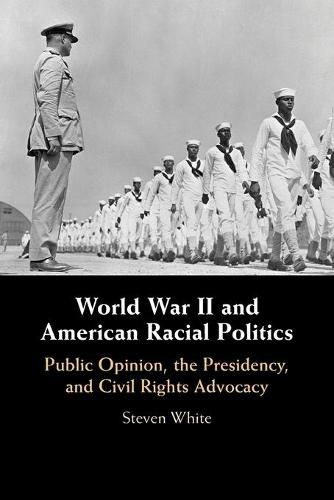Readings Newsletter
Become a Readings Member to make your shopping experience even easier.
Sign in or sign up for free!
You’re not far away from qualifying for FREE standard shipping within Australia
You’ve qualified for FREE standard shipping within Australia
The cart is loading…






World War II played an important role in the trajectory of race and American political development, but the War’s effects were much more complex than many assume. Steven White offers an extensive analysis of rarely utilized survey data and archival evidence to assess white racial attitudes and the executive branch response to civil rights advocacy. He finds that, contrary to conventional wisdom, the white mass public’s racial policy attitudes largely did not liberalize during the war against Nazi Germany. In this context, advocates turned their attention to the possibility of unilateral action by the president, emphasizing a wartime civil rights agenda focused on discrimination in the defense industry and segregation in the military. This book offers a reinterpretation of this critical period in American political development, as well as implications for the theoretical relationship between war and the inclusion of marginalized groups in democratic societies.
$9.00 standard shipping within Australia
FREE standard shipping within Australia for orders over $100.00
Express & International shipping calculated at checkout
World War II played an important role in the trajectory of race and American political development, but the War’s effects were much more complex than many assume. Steven White offers an extensive analysis of rarely utilized survey data and archival evidence to assess white racial attitudes and the executive branch response to civil rights advocacy. He finds that, contrary to conventional wisdom, the white mass public’s racial policy attitudes largely did not liberalize during the war against Nazi Germany. In this context, advocates turned their attention to the possibility of unilateral action by the president, emphasizing a wartime civil rights agenda focused on discrimination in the defense industry and segregation in the military. This book offers a reinterpretation of this critical period in American political development, as well as implications for the theoretical relationship between war and the inclusion of marginalized groups in democratic societies.